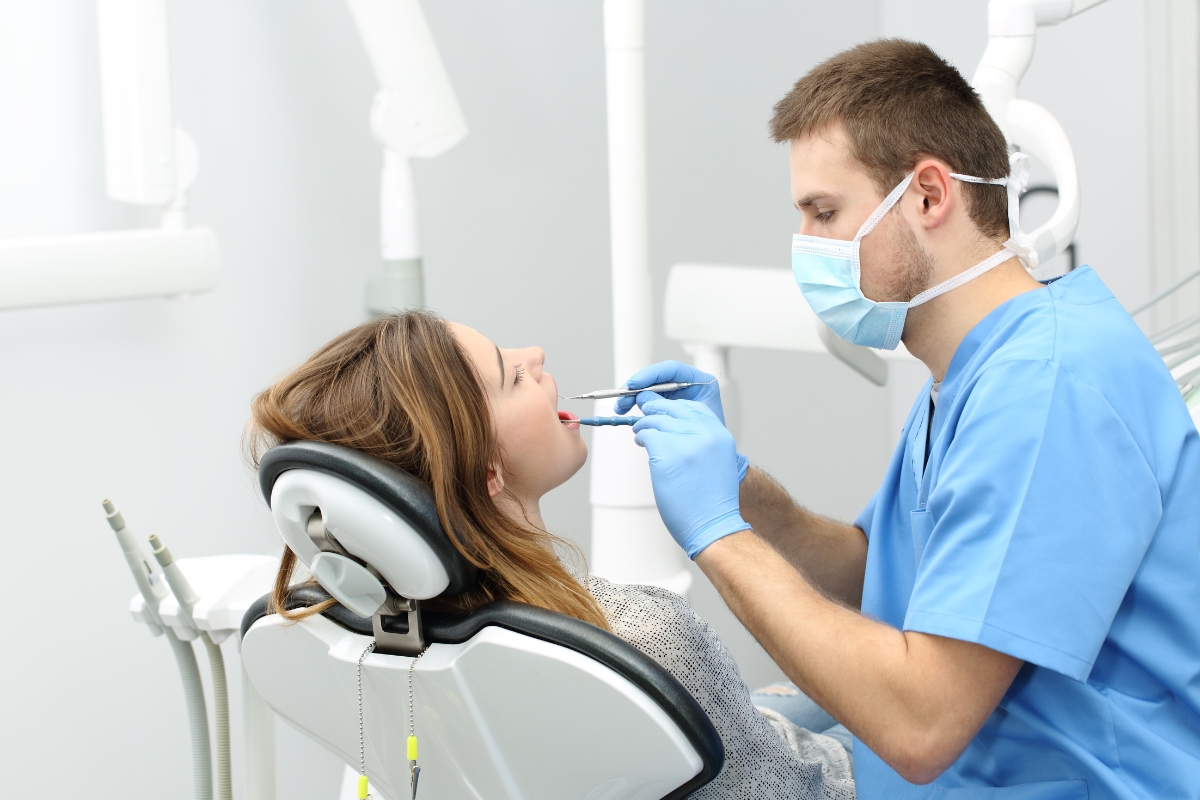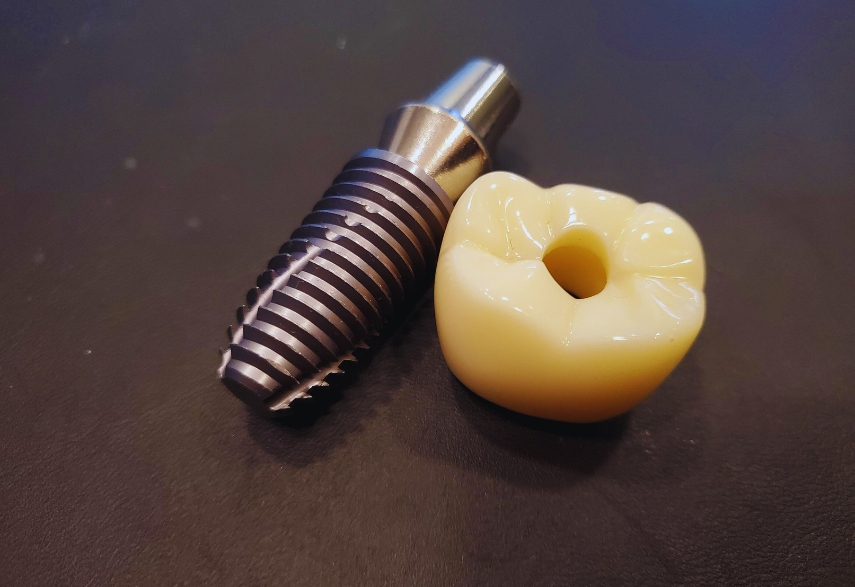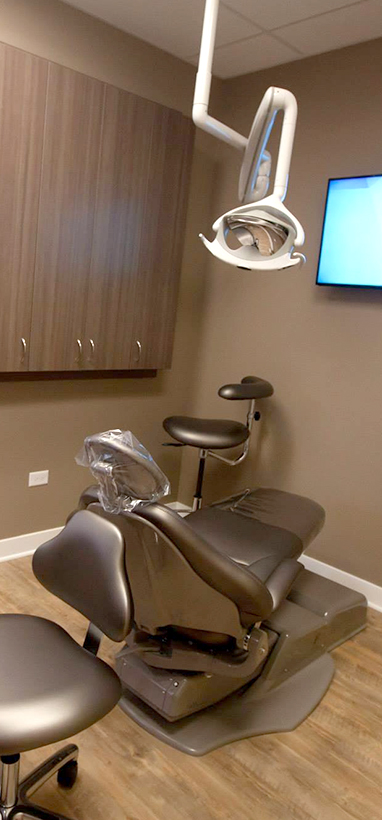1516 Legacy Cir, Naperville, IL 60563
Oral Surgery Recovery: How to Maintain a Balanced Diet Without Chewing

Oral surgery can be a daunting experience, but the path to recovery often involves dietary challenges. After undergoing surgical procedures, it’s essential to maintain proper nutrition to facilitate healing. However, many oral surgeries limit your ability to chew, making it a bit tricky to consume solid foods. In this comprehensive guide, we’ll explore various soft and nutritious options to help you maintain a balanced diet during oral surgery recovery.
The Importance of Proper Nutrition After Oral Surgery
Proper nutrition is crucial during the recovery phase after oral surgery. A well-balanced diet speeds up the healing process and prevents complications. Whether you’ve had a wisdom tooth extraction, dental implant surgery, or any other oral procedure, the challenge often lies in finding alternatives to solid foods when chewing is limited or painful.
Yogurt: A Creamy and Nutrient-Rich Delight
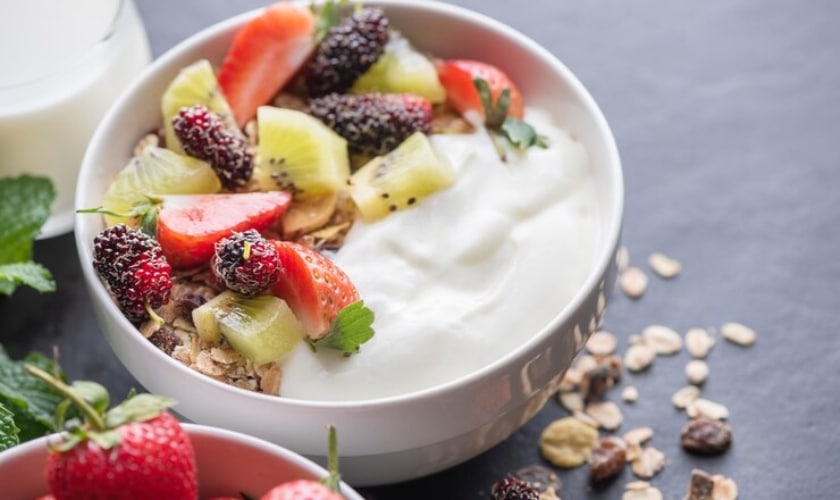
Yogurt is a fantastic choice for oral surgery recovery. It’s not only easy to consume, but it’s also packed with essential nutrients like calcium and protein. These nutrients are vital for tissue repair and overall oral health. Opt for plain, unsweetened yogurt to avoid discomfort from added sugars or flavors.
Smoothies and Shakes: Nutrient-Packed and Refreshing
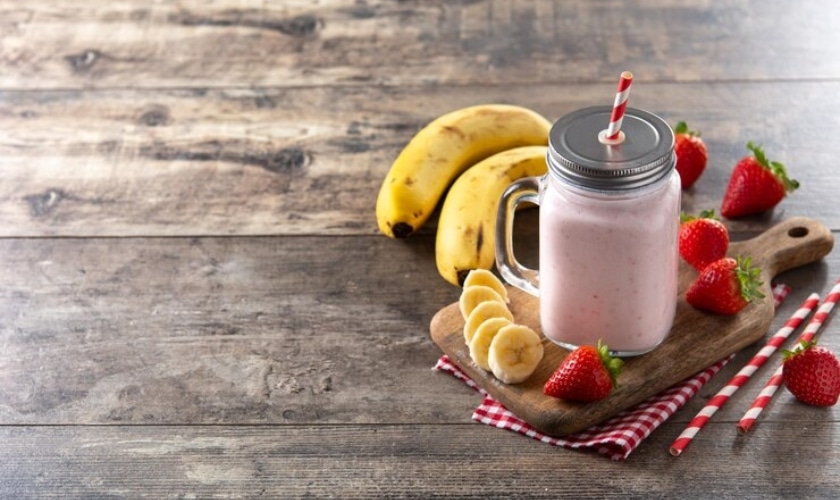
Smoothies and shakes are versatile options that can be customized to your taste and nutritional needs. You can blend soft fruits, vegetables, yogurt, and protein powders to create a nutrient-packed, easy-to-consume meal. Remember to avoid using a straw, as the sucking motion can disrupt healing.
Soups: Comforting and Nourishing

Soups are a comforting choice during oral surgery recovery. Broth-based soups, such as chicken or vegetables, are rich in nutrients and easy to consume. They also provide hydration, which is essential for the healing process. Ensure the soups are lukewarm and not too hot to prevent irritation.
Mashed Food: Soft and Satisfying
Mashed foods are a soothing and satisfying solution for those navigating the challenges of an oral surgery recovery diet. Among these comforting choices, mashed potatoes stand out as a universal favorite, offering a creamy and rich side dish that requires minimal effort to enjoy.
For a more nutritious alternative, mashed cauliflower provides a similarly creamy texture and boosts essential nutrients. With its naturally sweet flavor, mashed pumpkin offers vitamins and fiber in a gentle, easy-to-swallow form. And if you’re craving a classic favorite, soft macaroni and cheese can be prepared in a mashed, velvety version that’s gentle on your healing mouth.
Instant Oatmeal: A Warm and Filling Option
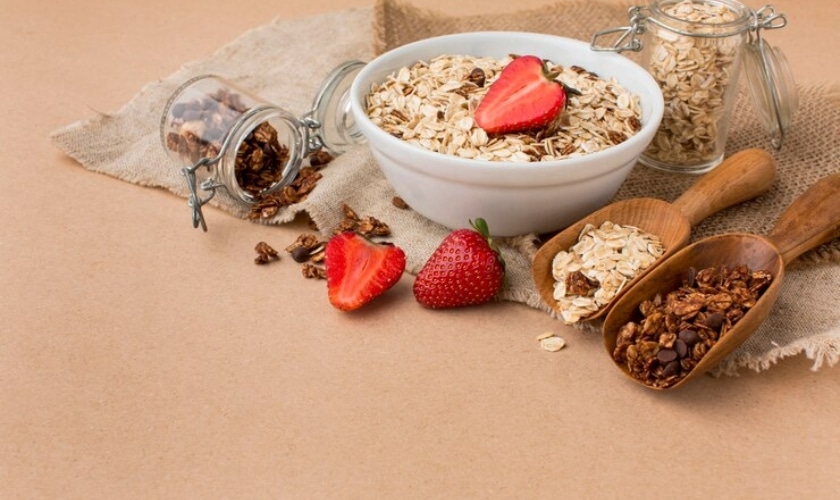
During your oral surgery recovery, a warm and filling option like instant oatmeal can be a comforting addition to your diet. Oatmeal is a well-loved breakfast staple known for its versatility and nutritional benefits. It is an excellent choice during your recovery because of its soft, mushy texture when prepared with milk, water, or a milk substitute.
Instant oatmeal is not only easy to prepare, but it’s also gentle on your healing oral tissues. It offers a comforting warmth that can be particularly soothing after oral surgery.
To enhance flavor and nutrition, consider adding soft fruits like ripe bananas. Bananas can be easily mashed and stirred into your oatmeal, providing a natural sweetness and an extra dose of vitamins and dietary fiber.
Cheesecake: A Sweet Treat

After oral surgery, you may find yourself longing for a touch of sweetness. Cheesecake comes to the rescue as a delightful, soft-textured dessert. Its creamy consistency requires minimal chewing effort, making it a perfect indulgence during recovery.
Opt for plain cheesecake without crunchy crust or hard toppings to ensure your post-surgery comfort. The rich, velvety filling provides a satisfying contrast to the softer foods in your diet. Consider topping your cheesecake with a spoonful of fruit compote or a swirl of honey for added flavor and a nutritional boost. These additions not only enhance the taste but also introduce some vitamins and antioxidants to your meal.
Additional Tips for a Smooth Recovery
Alongside the diets mentioned above, you can follow these simple steps for speedy recovery after dental surgeries.
Stay Hydrated
Proper hydration is paramount for a smooth recovery. After oral surgery, you may experience dry mouth, which can be uncomfortable. Drinking water not only alleviates this but also aids in flushing out bacteria, reducing the risk of infection. Hydration is particularly crucial if you’re consuming soft or liquid foods. Sip water throughout the day, and avoid very hot or very cold beverages that could irritate the surgical site.
Avoid Certain Foods
During the initial phases of recovery, it’s best to steer clear of foods that could harm your healing oral tissues. Spicy, crunchy, and acidic foods are known to irritate the surgical site and may cause discomfort or complications. Stick to the soft and bland diet your dentist or oral surgeon recommends to ensure a trouble-free healing process.
Follow Your Dentist’s Guidelines
Your dentist will provide specific dietary instructions tailored to your surgery type and individual needs. These guidelines are not to be taken lightly—they are crafted to promote a smooth and complication-free recovery. Ensure that you understand and follow these instructions diligently. If you have any questions or concerns, don’t hesitate to contact your dental care provider for clarification.
Gradual Transition
As your recovery progresses, you may find it tempting to reintroduce solid foods into your diet. However, patience is key. Begin with soft, easy-to-chew options and gradually switch to more complex foods. This approach minimizes the risk of discomfort or complications. Always prioritize your comfort and the healing process over cravings for hard or challenging foods. Your dentist can advise you on the appropriate timing for transitioning to a regular diet.
Maintaining a balanced diet after oral surgery without the ability to chew can be a challenge, but it’s vital for a smooth and successful recovery. You can get nutrition by incorporating soft and nutrient-rich diets. Remember to follow your dentist’s recommendations and prioritize hydration for a quicker and more comfortable healing process.
FAQs on Oral Surgery
Q. Can I smoke after oral surgery?
Ans: Smoking should be avoided after oral surgery. Nicotine hinders the healing process and can lead to complications like dry sockets. It’s best to quit smoking during your recovery.
Q. Can I use a straw for drinking?
Ans: Using a straw can create suction, which might dislodge blood clots or stitches. Avoiding straws for the first few days post-surgery is advisable to promote proper healing.
Q. When can I resume my regular dental hygiene routine?
Ans: You should be gentle when resuming your dental hygiene routine. Wait a day or two, and then brush and floss carefully to avoid the surgical area. Consult your dental expert for specific guidance.
Q. How do I manage swelling?
Ans: Swelling is common after oral surgery. Apply ice packs for the first 24-48 hours to reduce swelling. You can also elevate your head while sleeping to help minimize swelling.
Q. Can I consume alcohol during recovery?
Ans: It’s best to avoid alcohol during the initial recovery phase. Alcohol can interfere with healing, increase bleeding, and react negatively with pain medications. Stick to water and soft, non-alcoholic beverages until your dentist advises otherwise.



